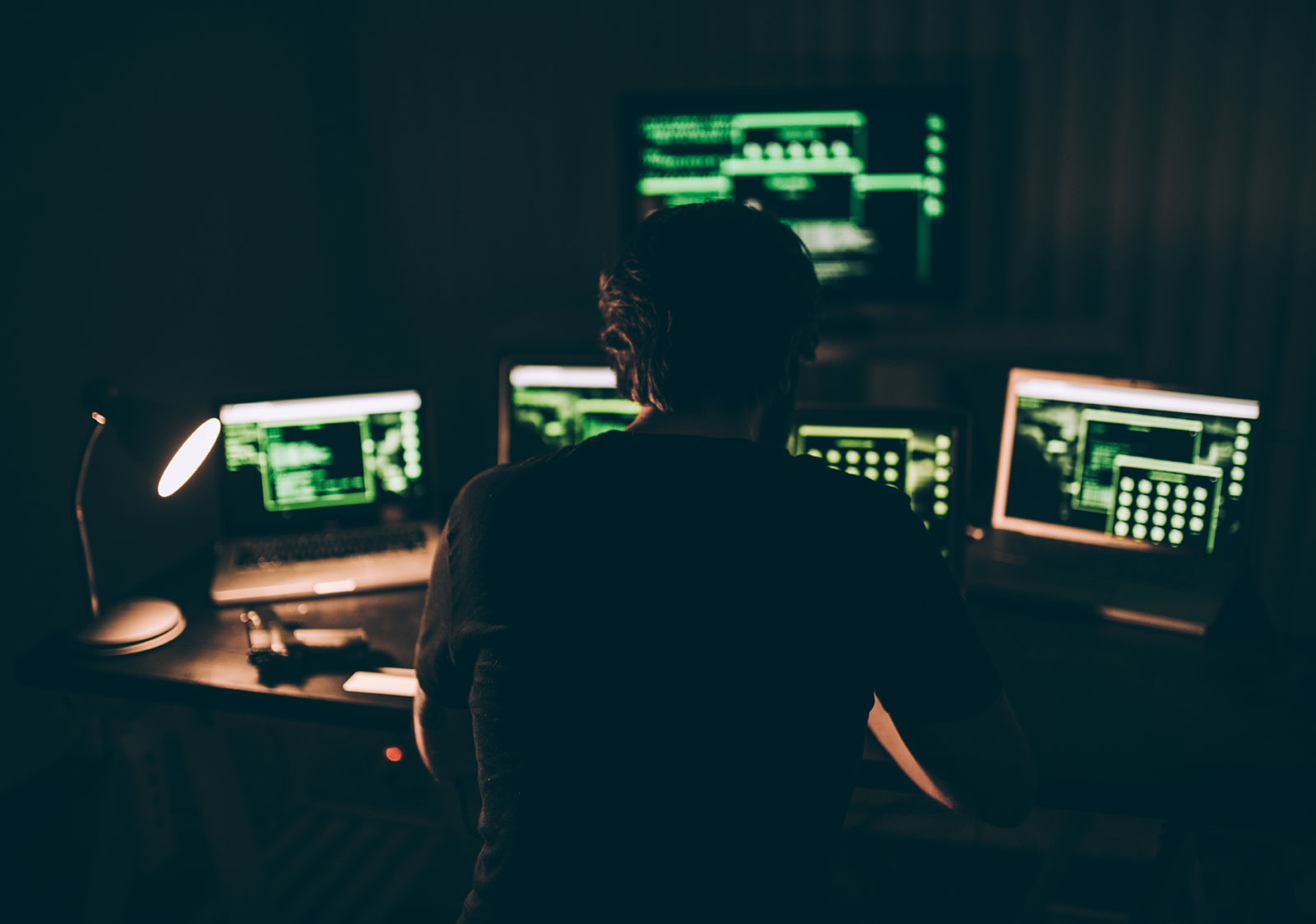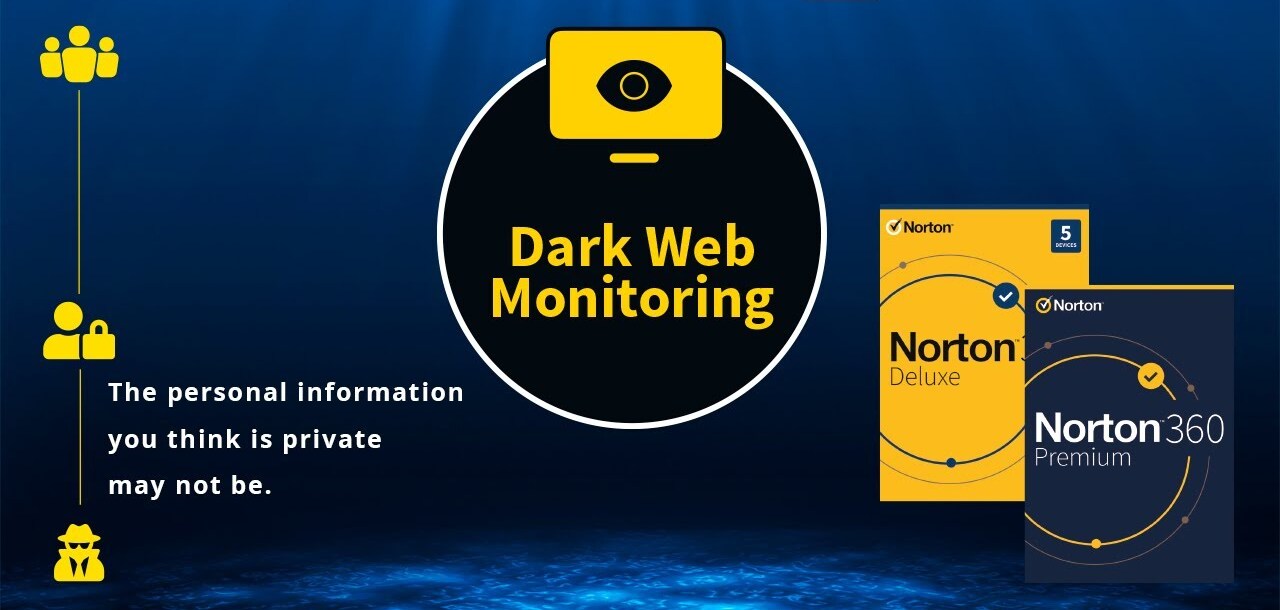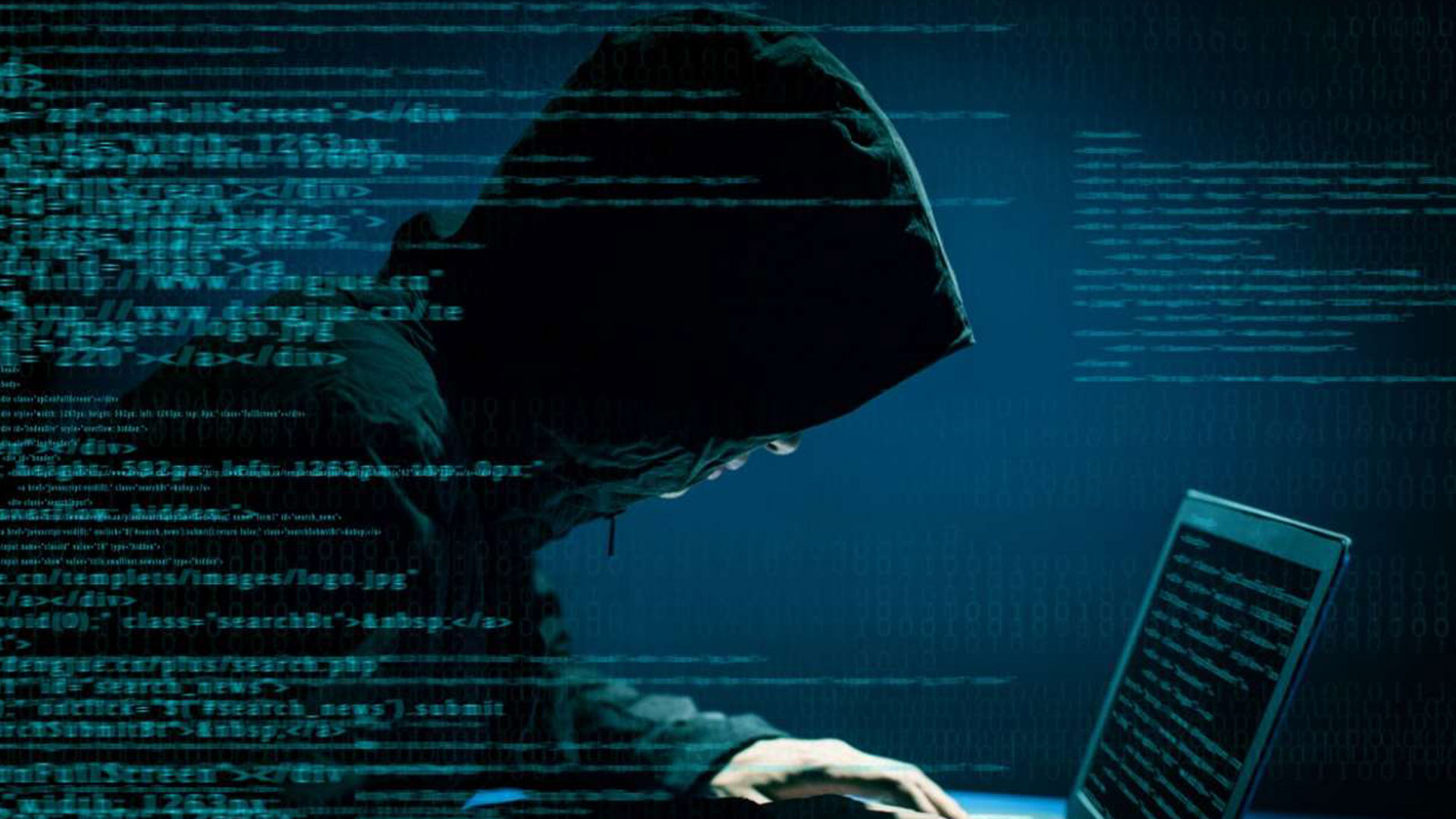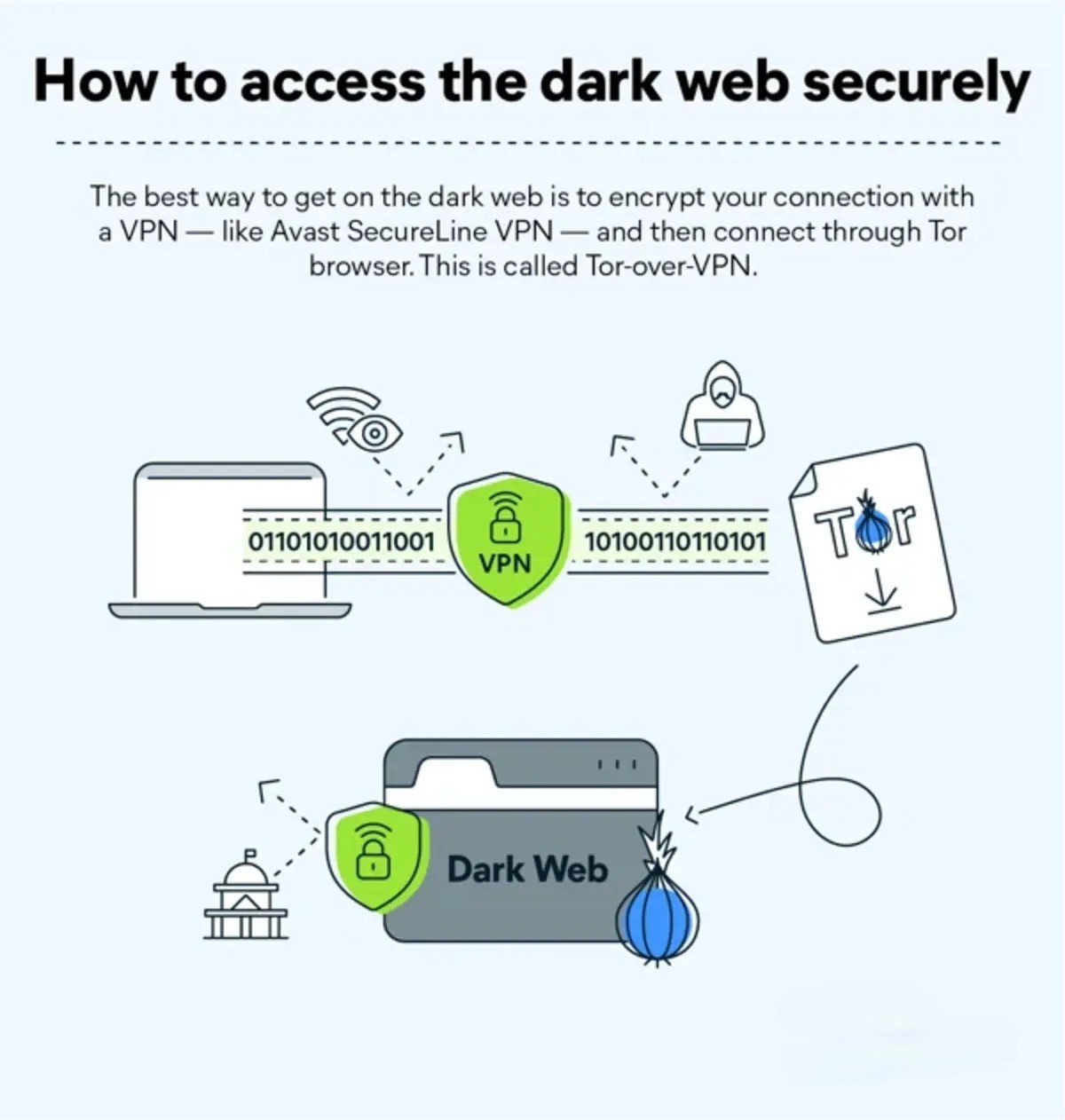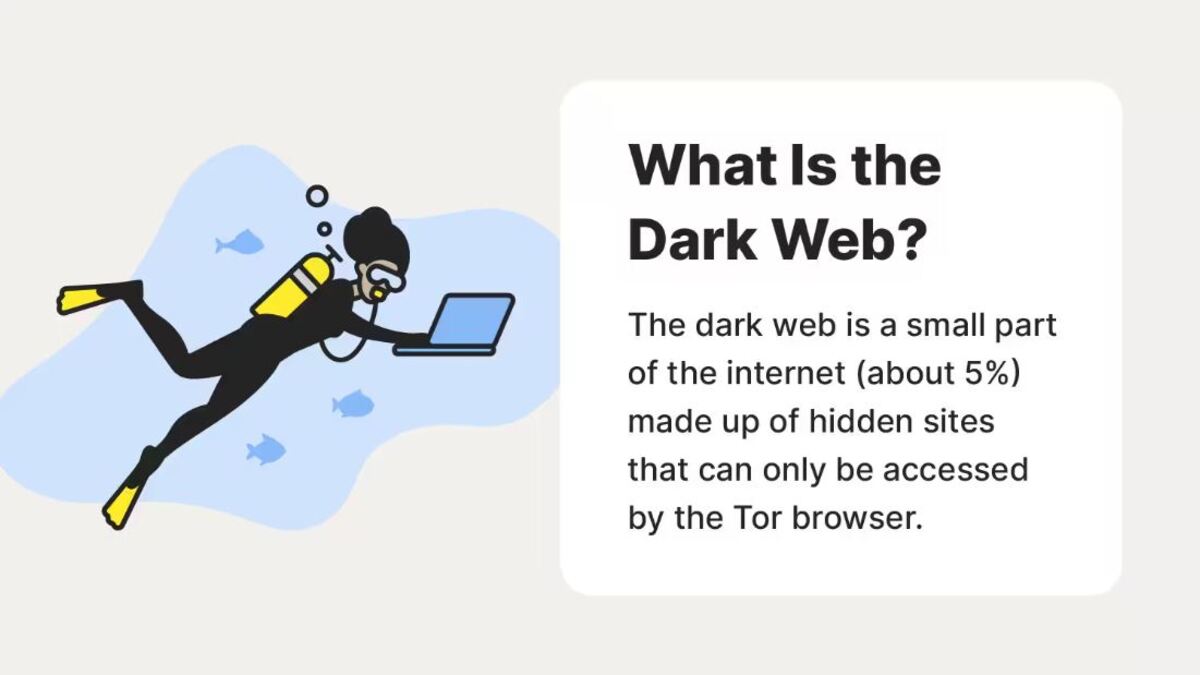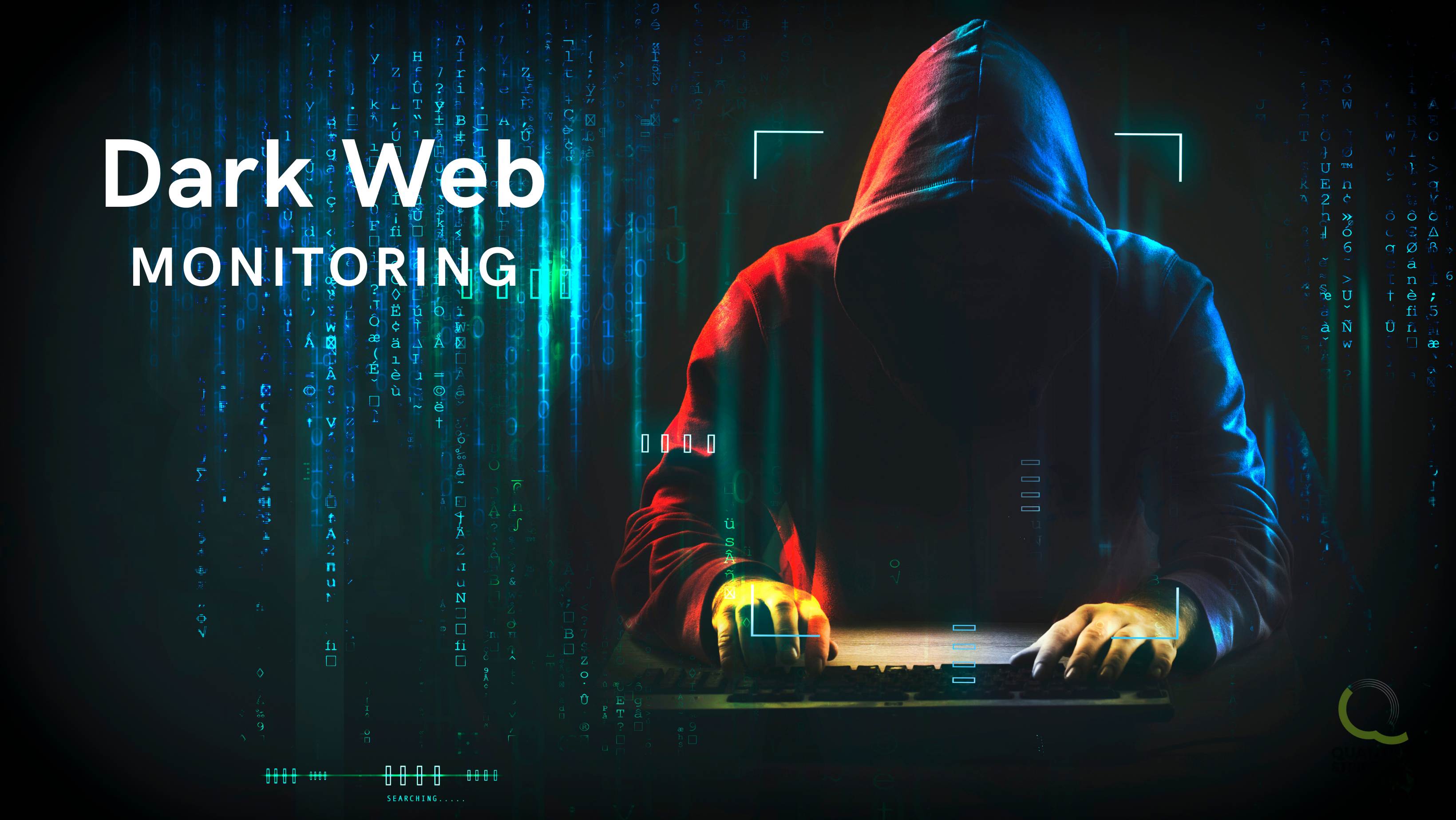Introduction
The Dark Web is a term that has become synonymous with the hidden side of the internet – a mysterious and often misunderstood realm where anonymity reigns and illicit activities thrive. It is a part of the World Wide Web that is intentionally hidden, inaccessible to search engines, and requires specific software to access.
In recent years, the Dark Web has gained significant attention due to its association with cybercrime, illegal activities, and secrecy. However, it is essential to understand that not everything on the Dark Web is inherently nefarious. While it is true that the anonymity provided by the Dark Web attracts criminal elements, it also serves as a platform for privacy advocates, whistleblowers, and political dissidents to communicate and share information without fear of reprisal.
This article delves into the Dark Web, exploring its origins, the diverse range of users it attracts, and the complex issue of ownership. By shedding light on this hidden corner of the internet, we aim to provide insight into the multifaceted nature of the Dark Web and the implications it has for individuals, governments, and corporations alike.
What is the Dark Web?
The Dark Web is a subset of the Deep Web, which refers to all the web pages that are not indexed by search engines. While the Deep Web consists of legitimate websites like email platforms, banking portals, and databases, the Dark Web is specifically associated with hidden services and content.
What sets the Dark Web apart is its use of overlay networks such as Tor (The Onion Router) to provide anonymity to its users. This network encrypts user data and routes it through a series of servers, obscuring the origin and destination, making it difficult to trace an individual’s online activities.
Within the Dark Web, individuals can access various platforms and services that are not easily accessible on the surface web. These include forums, marketplaces, hacking tools, illegal pornography, drugs, counterfeit goods, and even hitmen for hire. However, it is worth noting that not all activities on the Dark Web are illegal or immoral. Some users utilize this hidden network for legitimate purposes, such as anonymous whistleblowing or accessing information that may be censored in their countries.
The architecture of the Dark Web allows individuals to communicate and transact without leaving a digital trail. This has attracted individuals seeking privacy and anonymity from oppressive governments, intrusive surveillance, or personal vendettas. While the Dark Web offers a veil of protection, it also poses significant risks for its users. The lack of regulation and accountability creates an environment where scams, malware, and cyber attacks are prevalent.
It is important to differentiate between the Dark Web and the surface web. While the surface web consists of websites accessible through search engines like Google or Yahoo, the Dark Web remains deliberately hidden and often requires specialized software and knowledge to access. The Deep Web, on the other hand, includes both the Dark Web and legitimate web pages that are not indexed by search engines.
While the concept of the Dark Web may seem intriguing, it is crucial to approach it with caution. Exploring the depths of the Dark Web is not only illegal in many jurisdictions but also exposes users to a range of dangers. It is recommended to avoid accessing the Dark Web unless you have a specific legitimate purpose and take necessary precautions to protect your identity and digital security.
The Origins of the Dark Web
The concept of the Dark Web can be traced back to the 1990s when the U.S. Naval Research Laboratory developed “The Onion Router” (Tor). The initial purpose of Tor was to protect government communications by providing anonymity and preventing censorship.
However, Tor’s potential for anonymity quickly attracted attention beyond government circles. In 2004, the Tor Project was launched as a non-profit organization dedicated to developing and improving the Tor network to empower individuals worldwide with online privacy and freedom of expression.
From its inception, the Dark Web has served as a refuge for those who sought to overcome censorship, surveillance, and government control. It provided a platform for dissidents, journalists, activists, and whistleblowers to communicate and share information without fear of reprisal.
Over time, the Dark Web evolved to cater to a broader range of needs and desires. Cybercriminals recognized its potential as a safe haven for illegal activities. Darknet marketplaces, such as Silk Road, emerged as hubs for anonymous trade of drugs, weapons, stolen data, and other illicit goods and services.
The closure of Silk Road by law enforcement in 2013 marked a significant turning point in the public’s awareness of the Dark Web. It brought to light the shadowy underbelly of this hidden network and fuelled intense debates around online privacy, law enforcement, and the regulation of the internet.
Since then, the Dark Web has continued to evolve, with new marketplaces, forums, and hidden services popping up to replace those shut down by authorities. The constant cat-and-mouse game between law enforcement agencies and cybercriminals has driven the development of sophisticated techniques to mask identities and remain undetected.
In recent years, the Dark Web has become a lucrative marketplace for ransomware-as-a-service (RaaS) operations, hacker-for-hire services, and identity theft. Cybercriminals exploit the Dark Web’s anonymity to carry out their illegal activities while making it difficult for law enforcement to trace their operations.
It is important to note that although the Dark Web has a sordid reputation, it also serves as a vital outlet for individuals living under oppressive regimes or facing persecution. For them, the Dark Web offers a means of communication, organizing resistance, and sharing information while minimizing the risk of detection.
The origins of the Dark Web lie in the quest for anonymity and freedom of expression. However, its evolution has showcased a darker side, with cybercrime and illicit activities thriving in its anonymous depths. Balancing the desire for privacy and security with the need to combat criminality remains an ongoing challenge for governments and law enforcement agencies around the world.
Who Uses the Dark Web?
The Dark Web attracts a diverse range of individuals and groups with varied motivations and purposes. While the common perception associates the Dark Web primarily with illegal activities and cybercrime, it is important to recognize that not all users engage in nefarious endeavors. Here are some of the main groups that utilize the Dark Web:
1. Cybercriminals: The Dark Web provides a thriving marketplace for cybercriminals to trade stolen data, hacking tools, malware, and other illicit goods and services. These individuals exploit the anonymity and encryption provided by the Dark Web to carry out illegal activities without fear of detection.
2. Privacy Advocates and Whistleblowers: The Dark Web offers a platform for individuals who value privacy and wish to communicate or share information without being tracked. Privacy advocates, journalists, and whistleblowers often utilize the Dark Web to leak sensitive documents or expose wrongdoing while maintaining their anonymity.
3. Hacktivists and Political Dissidents: For those living under oppressive regimes or facing political persecution, the Dark Web provides a critical means of communication and organizing resistance. Hacktivist groups and political dissidents can use the Dark Web to bypass censorship, share information, and coordinate their efforts, protecting themselves from government surveillance.
4. Corporations and Governments: Although the Dark Web is primarily associated with illegal activities, some corporations and governments employ it for legitimate purposes. For example, intelligence agencies may use the Dark Web to gather information or monitor criminal activities. Similarly, some corporations may utilize its anonymity to conduct market research or gather competitive intelligence.
5. Researchers and Journalists: The Dark Web offers a unique opportunity for researchers and journalists to explore the hidden corners of the internet and uncover insights that may not be readily available on the surface web. By navigating the Dark Web, they can gain a better understanding of cybercriminal tactics, emerging threats, and the broader implications for online security.
While these groups represent a significant portion of Dark Web users, it is important to note that the motivations and actions of individuals within these groups can vary widely. Not all users are engaged in illegal or malicious activities. The Dark Web’s anonymity and protection of privacy also attract individuals with legitimate concerns, such as those seeking refuge from surveillance, censorship, or government oppression.
Understanding the diverse range of users on the Dark Web is crucial for addressing the complex issues it presents. The challenge lies in separating those who seek to exploit the Dark Web for illegal purposes from those who rely on it for legitimate reasons. Regulation, law enforcement efforts, and increased awareness are essential for striking a balance between freedom, privacy, and public safety in this hidden corner of the internet.
The Elusive Ownership of the Dark Web
One of the intriguing aspects of the Dark Web is its elusive ownership. Due to its decentralized and anonymous nature, there is no singular entity or organization that can claim ownership or control over the entire Dark Web. Instead, it operates as a network of interconnected nodes, each serving as a gateway to different hidden services and content.
The lack of centralization on the Dark Web is primarily attributed to the use of overlay networks such as Tor. These networks distribute the traffic across a multitude of volunteer-run nodes, making it difficult to pinpoint the location of websites or track their owners. Additionally, the anonymity provided by these networks allows individuals to create and maintain websites without revealing their identity or location.
While there is no central authority governing the Dark Web, individual websites or marketplaces within it may have their own administrators or moderators who oversee their operations. However, the identities and locations of these administrators are often hidden, further complicating efforts to determine ownership.
It is worth noting that some law enforcement agencies and cybersecurity firms have made notable strides in infiltrating the Dark Web and apprehending individuals involved in illegal activities. Through various techniques, including undercover operations and advanced tracking methods, they have managed to identify and apprehend some high-profile criminals. However, these efforts are challenging and require significant resources and expertise.
The elusive ownership of the Dark Web presents both advantages and disadvantages. On one hand, it provides a platform for individuals to exercise their freedom of speech, engage in whistleblowing activities, or seek refuge from oppressive regimes. The lack of central ownership makes it difficult for governments or authorities to shut down the entire Dark Web or control its content.
On the other hand, the absence of ownership and regulation also facilitates a fertile ground for cybercriminals and illegal activities. The anonymity provided by the Dark Web enables the creation of illicit marketplaces, sale of stolen data, trading of illegal goods, and other malicious activities. This poses a significant challenge for law enforcement agencies trying to combat cybercrime and maintain public safety.
Attempts to regulate or control the Dark Web’s ownership have proven to be highly complex. The balance between freedom, privacy, and security is a delicate one, and any significant efforts to gain control over the Dark Web may have unintended consequences, such as infringing upon individual rights or hindering legitimate uses.
As technologies evolve and law enforcement techniques advance, the ownership landscape of the Dark Web may continue to change. It is likely that future developments, such as advances in blockchain technology or decentralized networks, will introduce new dynamics and challenges concerning ownership and control.
The elusive nature of ownership on the Dark Web adds to its enigmatic character and continues to intrigue researchers, policymakers, and security experts. Understanding and addressing the complexities of ownership is essential for effectively dealing with the range of issues associated with the Dark Web while preserving the balance between privacy, security, and the rule of law.
Law Enforcement and the Dark Web
The Dark Web presents significant challenges for law enforcement agencies worldwide. Its anonymous and decentralized nature makes it a haven for cybercriminals, illicit activities, and illegal marketplaces. However, authorities have not been passive in the face of these challenges; they have made notable efforts to combat criminal activities and maintain public safety in the hidden corners of the internet.
Law enforcement agencies utilize various strategies to investigate and mitigate illicit activities on the Dark Web. These strategies include:
1. Infiltration and Undercover Operations: An effective method employed by law enforcement is to infiltrate the Dark Web by creating undercover accounts and posing as potential buyers or sellers. This allows authorities to gather intelligence, identify criminals, and gather evidence to build cases against illegal actors.
2. Collaboration and International Cooperation: The global nature of the Dark Web necessitates cooperation between law enforcement agencies across borders. Joint investigations and information-sharing initiatives enable agencies to pool resources, share expertise, and coordinate efforts to combat transnational cybercrime and dismantle illicit networks.
3. Enhanced Digital Forensics and Cryptocurrency Tracing: Law enforcement agencies are continually developing techniques and tools to trace transactions and gather digital evidence from the Dark Web. Advanced digital forensics capabilities, combined with advancements in cryptocurrency tracking, allow authorities to link illegal activities to specific individuals and disrupt criminal operations.
4. Public-Private Partnerships: Collaboration with cybersecurity firms, technology companies, and academia is essential in combating Dark Web activities. Public-private partnerships help in sharing knowledge, developing innovative solutions, and staying updated on emerging cyber threats.
While law enforcement efforts have yielded successes in apprehending high-profile criminals and shutting down illicit operations, the Dark Web remains a challenging environment to police. The anonymous nature of the Dark Web, encrypted communications, and the rapid evolution of cybercriminal tactics pose ongoing obstacles for traditional investigative methods.
Striking a balance between personal privacy and maintaining law and order on the Dark Web is another complex issue faced by law enforcement authorities. The need to ensure individual rights while protecting the public from cybercrime is an ongoing challenge. This delicate balance requires careful consideration of legal frameworks, ethical guidelines, and the development of appropriate investigative protocols.
It is important to note that maintaining public safety does not necessarily require compromising privacy or weakening encryption protocols. Rather, it requires a comprehensive and multi-faceted approach that combines proactive law enforcement, ongoing research and development of tools and techniques, and collaboration among various stakeholders.
As the Dark Web continues to evolve and adapt, law enforcement agencies must remain vigilant and adaptable. Investing in training, resources, and technology is crucial for staying ahead of cybercriminals and protecting individuals and organizations from the threats that lurk in the depths of the Dark Web.
Underground Markets and Cybercriminals on the Dark Web
The Dark Web has gained notoriety as a hotspot for underground markets and cybercriminal activities. It serves as a breeding ground for illegal transactions, where individuals can engage in illicit activities with a degree of anonymity and reduced fear of detection. The underground markets on the Dark Web offer a wide array of goods and services, attracting cybercriminals from around the world.
One of the most prominent activities on the Dark Web is the sale of drugs. Numerous marketplaces exist where buyers and sellers can conduct anonymous transactions, often using cryptocurrencies like Bitcoin. These marketplaces provide a platform for drug traffickers to connect with buyers, facilitating the distribution of illegal substances on a global scale.
In addition to drugs, cybercriminals on the Dark Web engage in selling stolen data, including credit card information, Social Security numbers, and login credentials. This stolen data is used for various criminal purposes, such as identity theft, financial fraud, or gaining unauthorized access to accounts and systems.
The Dark Web is also a hub for hackers and cybercriminals offering their services for hire. These services include hacking into systems, conducting distributed denial-of-service (DDoS) attacks, creating and distributing malware, and providing expertise in various cybercriminal activities. These cybercriminals often advertise their skills and services on underground forums, catering to the demand for cybercrime-as-a-service.
Another prevalent activity on the Dark Web is the sale of counterfeit goods, including fake passports, counterfeit currency, counterfeit luxury items, and fraudulent documents. These underground markets provide an avenue for individuals to acquire counterfeit products or documents that can be used for illegal purposes.
The underground markets on the Dark Web operate with their own set of rules and security measures. Escrow services are commonly used to facilitate trust between buyers and sellers, where funds are held in escrow until the transaction is completed. Cryptocurrency-based transactions and the use of encrypted messaging for communication further add layers of security and anonymity.
Law enforcement agencies and cybersecurity firms constantly monitor the Dark Web to identify and disrupt cybercriminal activities. However, the anonymous and decentralized nature of the Dark Web poses significant challenges, making it difficult to track down criminals and shut down illicit operations.
Efforts are underway to combat illegal activities on the Dark Web, such as the collaboration between law enforcement agencies and cybersecurity firms. These collaborations aim to identify and apprehend key individuals involved in cybercriminal activities, dismantle marketplaces, and develop techniques for tracking stolen data and identifying potential victims.
It is important to recognize that not all activities on the Dark Web are inherently criminal. Whistleblowers, journalists, and privacy advocates also utilize the Dark Web to share and access information without fear of reprisal. Drawing a distinction between criminal activities and legitimate uses becomes crucial when dealing with the complexities of law enforcement in this hidden realm of the internet.
Addressing the presence of underground markets and cybercriminals on the Dark Web requires a multi-faceted approach, combining advanced cybersecurity measures, international cooperation, legislation enforcement, and public awareness. Only through a concerted effort can we hope to mitigate the risks posed by the Dark Web’s illicit activities and protect individuals and organizations from falling victim to cybercrime.
Privacy Advocates and Whistleblowers on the Dark Web
Privacy advocates and whistleblowers play a vital role on the Dark Web by utilizing its anonymity and encryption to speak out and share information without fear of retribution or censorship. The Dark Web provides a platform for these individuals to exercise their freedom of speech, expose wrongdoing, and protect their identities.
Whistleblowers, in particular, turn to the Dark Web to reveal sensitive or classified information that may expose corruption, human rights abuses, or illegal activities. By leaking information anonymously, whistleblowers protect themselves from potential retaliation, ensuring that their revelations reach the public eye.
One of the most notable examples of whistleblowing on the Dark Web is the creation of platforms like WikiLeaks. These platforms allow individuals to securely leak documents and expose the truth, often in the public interest. By leveraging the Dark Web’s anonymity, whistleblowers can release information without the risk of being identified or silenced.
Privacy advocates, on the other hand, use the Dark Web as a means to communicate, collaborate, and promote the importance of online anonymity and personal privacy. They believe in the fundamental right of individuals to protect their digital identities and personal information from surveillance and intrusive monitoring.
The Dark Web provides privacy advocates a platform to share knowledge, engage in discussions, and develop tools and methodologies to counteract mass surveillance and censorship. It allows them to explore alternative means of communication that are resistant to government control and surveillance, promoting the idea that privacy is a critical aspect of personal freedom and human rights.
While privacy advocates and whistleblowers contribute to the openness and transparency of information on the Dark Web, their activities also invite controversy and debates surrounding national security, government surveillance, and the balance between individual privacy and public safety.
Some argue that the ability to leak classified information or communicate anonymously on the Dark Web endangers national security and facilitates criminal activities. However, privacy advocates and whistleblowers argue that these activities are crucial for exposing corruption, upholding accountability, and protecting human rights.
It is essential to foster a nuanced discussion and understanding of the role that privacy advocates and whistleblowers play on the Dark Web. By recognizing their motives and the importance of their work, society can better navigate the complexities surrounding privacy, freedom of speech, and the regulation of the internet.
Efforts to protect and promote online privacy should not be disregarded or undermined solely because of the potential risks that accompany them. Instead, creating a regulatory framework that encourages responsible whistleblowing and safeguards individual privacy rights is necessary to strike the delicate balance between transparency, accountability, and personal freedoms.
The continuous presence of privacy advocates and whistleblowers on the Dark Web underscores the importance of preserving a space where individuals can freely express themselves and expose injustices without fear of retribution. It serves as a reminder that the fight for privacy, transparency, and freedom of speech continues, both within the confines of the Dark Web and in broader society.
Hacktivists and Political Dissidents on the Dark Web
The Dark Web serves as a crucial platform for hacktivists and political dissidents who seek to challenge oppressive regimes, advocate for human rights, and exercise freedom of speech in an environment where they may face severe consequences for their actions. These individuals utilize the anonymity and encryption provided by the Dark Web to communicate, organize, and share information without fear of surveillance or reprisal.
Hacktivists are individuals or groups who combine hacking skills with political activism to promote their cause or challenge institutions and individuals they perceive as oppressive or unjust. They leverage their technical expertise to carry out cyber-operations in pursuit of their objectives, often targeting government entities, corporations, or organizations engaged in activities they oppose.
On the Dark Web, hacktivists find a platform where they can freely express their dissenting views, share their hacking techniques, and coordinate their actions. They can uncover and disseminate information that may be censored or suppressed on the surface web, amplifying their message and raising awareness about social and political issues.
Political dissidents, on the other hand, utilize the Dark Web as a secure avenue to communicate and organize resistance against repressive governments or authoritarian regimes. These individuals often face persecution, surveillance, and censorship in their home countries, making the Dark Web a critical tool in their fight for human rights and political freedom.
By evading government surveillance and censorship, political dissidents can share information, organize protests, and collaborate with like-minded individuals in a safe and secure environment. The Dark Web offers them the space to express dissenting views, challenge oppressive policies, and advocate for democratic ideals while minimizing the risk of detection and reprisal.
One of the most significant examples of hacktivism on the Dark Web is the collective known as Anonymous. Anonymous carries out operations targeting entities they perceive as corrupt or unjust, often launching distributed denial-of-service (DDoS) attacks, hacking into databases, or leaking sensitive information. Through their actions, Anonymous aims to expose wrongdoing and promote social justice.
It is important to note that while many hacktivists and political dissidents on the Dark Web engage in acts that challenge existing power structures, not all their actions can be classified as illegal or inherently harmful. Their activities range from acts of civil disobedience to targeted attacks against those they deem responsible for oppression or injustice.
The presence of hacktivists and political dissidents on the Dark Web highlights the global struggle for freedom, human rights, and social justice. It also forces us to confront the delicate balance between individual freedoms, government surveillance, and the rule of law.
Negotiating this balance requires an open dialogue and a nuanced understanding of the situations faced by hacktivists and political dissidents. While law enforcement agencies have a responsibility to uphold the law and combat criminal activities, it is equally important to ensure that legitimate acts of dissent are protected and that individuals are safeguarded from oppression and persecution.
The Dark Web provides a unique space for hacktivists and political dissidents to challenge the status quo, expose injustice, and advocate for change. Recognizing and supporting these efforts are essential for advancing human rights, fostering democracy, and promoting a more inclusive and just society.
Corporations and Governments on the Dark Web
The Dark Web, often associated with illicit activities and cybercriminals, is not limited to individuals or groups seeking to exploit its anonymity. Corporations and governments also make use of the Dark Web for various purposes, ranging from intelligence gathering to conducting sensitive operations.
Government agencies, particularly intelligence and law enforcement agencies, recognize the value of the Dark Web as a source of intelligence and a platform for monitoring and infiltrating criminal activities. They utilize the Dark Web to gather information, track illegal operations, identify malicious actors, and prevent potential threats to national security. By monitoring Dark Web activities, governments gain insights into cybercrime networks, extremist groups, and other illicit activities.
In addition to governmental agencies, corporations also have vested interests in the Dark Web. For example, cybersecurity firms may actively monitor the Dark Web to identify and study emerging threats, vulnerabilities, and hacker techniques. This information helps them develop stronger defense mechanisms and safeguard their clients’ digital assets.
Some corporations and organizations employ “ethical hackers” or white-hat hackers who operate within legal and ethical boundaries to identify vulnerabilities in systems and networks. The Dark Web serves as a platform for these professionals to exchange knowledge, share techniques, and collaborate on security research.
Furthermore, corporations may use the Dark Web for competitive intelligence gathering. By monitoring Dark Web forums and marketplaces, businesses can gain insights into the trade of counterfeit goods, brand infringements, or unauthorized distribution of their products. This information enables companies to take proactive measures to protect their brand reputation and intellectual property.
While corporations and governments have legitimate intentions for using the Dark Web, it is essential to consider the ethical implications and potential risks involved. The fine line between lawful monitoring and intrusive surveillance should be recognized and respected, ensuring that individual privacy rights are not compromised in the name of corporate or governmental interests.
Regulation and transparency play crucial roles in addressing the presence of corporations and governments on the Dark Web. Establishing clear guidelines and legal frameworks for their activities can help strike a balance between legitimate purposes and potential abuse of power. Additionally, public oversight and accountability mechanisms are critical in ensuring that these entities operate within ethical boundaries.
The involvement of corporations and governments on the Dark Web brings forth complex discussions about privacy, surveillance, and the extent to which authorities should engage in monitoring online activities. Striking the right balance is essential to protect individual rights, maintain cybersecurity, and combat illegal activities while respecting principles of democracy and personal freedom.
Collaboration between authorities, cybersecurity experts, and the private sector can lead to more responsible and effective use of the Dark Web’s capabilities. By working together, it is possible to leverage its potential for legitimate purposes while providing a framework that protects individual rights and promotes a fair and secure digital landscape.
Conclusion
The Dark Web continues to captivate the imagination and intrigue individuals with its hidden depths and enigmatic nature. It is a realm that attracts a diverse array of users, from cybercriminals and underground marketplaces to privacy advocates and political dissidents.
Understanding the Dark Web requires recognizing its complexities and the diverse motivations behind its usage. While the Dark Web is known for its association with illegal activities and anonymity, it also serves as a platform for those who seek to expose wrongdoing, protect individual privacy, and challenge oppressive regimes.
Law enforcement agencies face significant challenges in navigating the Dark Web’s decentralized and anonymous landscape. Initiatives involving infiltration, international cooperation, enhanced digital forensics, and public-private partnerships are essential for combating cybercrime and maintaining public safety.
Whistleblowers and privacy advocates find solace in the Dark Web’s anonymity, allowing them to expose corruption, share information, and fight for human rights without fear of reprisal. The precarious balance between personal freedoms and public safety must be carefully navigated to ensure their valuable contributions are protected.
Corporations and governments utilize the Dark Web for legitimate purposes such as intelligence gathering, cybersecurity research, and competitive intelligence. While these activities are essential, appropriate regulation and strong ethical frameworks are necessary to prevent abuses of power and protect individual privacy rights.
As the Dark Web evolves, so must our efforts to understand and address its challenges. Striking the right balance between privacy, security, and the rule of law is a complex task that requires collaboration, innovation, and a commitment to protecting individual rights in the digital realm.
To navigate the nuanced landscape of the Dark Web, it is crucial to recognize that it is not solely a hub for criminals and illegal activities. By acknowledging the diverse range of users and their motivations, we can foster a more comprehensive understanding and approach to dealing with the complex issues it presents.
Ultimately, the debate surrounding the Dark Web revolves around the delicate balance between personal freedoms, public safety, and privacy. By grappling with these issues and finding equitable solutions, we can strive to create a digital landscape that respects individual rights while mitigating the risks posed by criminal elements.
As technology continues to advance and societies grapple with the implications of the digital age, the Dark Web will remain a topic of fascination and ongoing exploration. It is a reminder of the ever-evolving landscape of the internet and the challenges we face in navigating its complexities.







